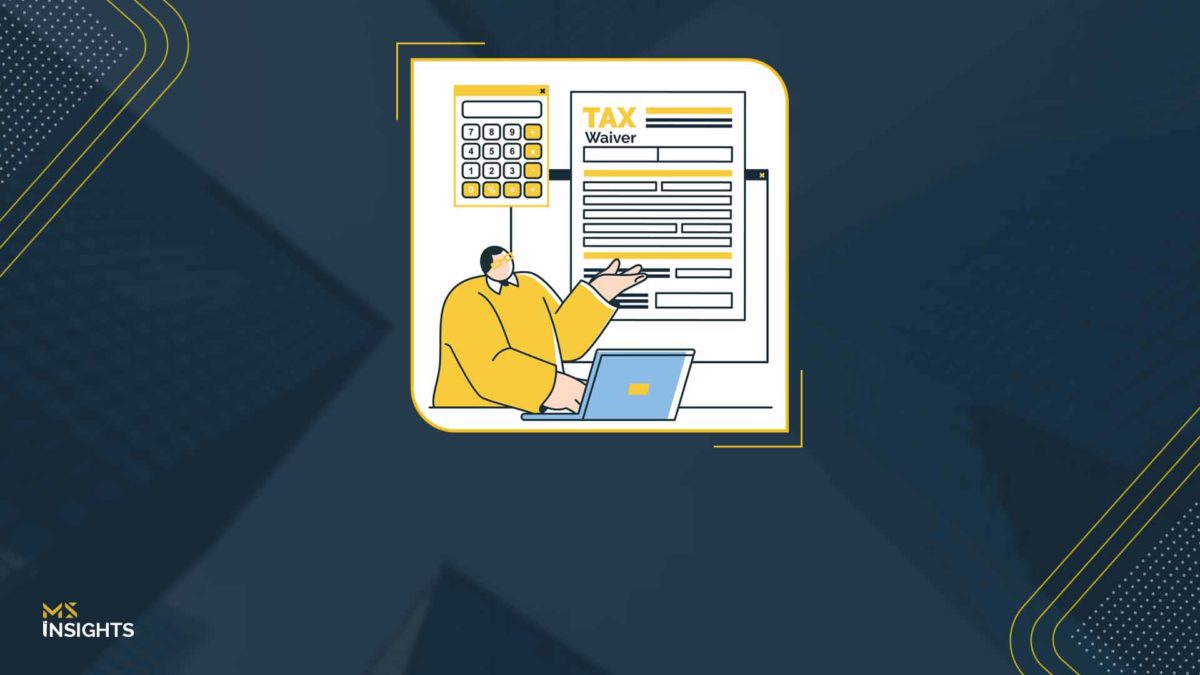The Essentials
The UAE’s first corporate tax season revealed both challenges and opportunities. Key pitfalls included misaligned first tax periods, free-zone misunderstandings, transfer pricing gaps, and cash-flow stresses. Businesses that invested in robust accounting, governance, and documentation mitigated risks and positioned themselves strategically. Looking toward 2026, proactive planning, clear compliance, and smart tax structuring will turn corporate tax from a regulatory obligation into a competitive advantage.
The UAE’s corporate landscape entered uncharted territory when the Corporate Tax (CT) regime came into effect for financial periods starting 1 June 2023. For decades, the UAE was celebrated for its zero-tax environment, but this shift marked a new era of fiscal maturity, transparency, and alignment with global standards.
Now, as businesses reflect on the inaugural CT season, the focus is shifting toward 2026 and beyond – the first full year under the regime where experience, systems, and strategic planning will truly determine winners. With evolving rules around free-zone benefits, transfer pricing, and global minimum tax compliance, companies that leverage lessons from the first season can turn UAE corporate tax compliance into a tool for competitive advantage, rather than just a compliance obligation.
Let’s explore the lessons learned from the first UAE CT season, highlighting common pitfalls, compliance challenges, and strategic opportunities, while also preparing businesses for the next chapter of UAE taxation in 2026.
Setting the Context: Why the UAE Introduced Corporate Tax?
Understanding the backdrop helps explain why the first season feels so consequential.
- Policy shift and alignment: The UAE’s CT regime is not just about raising revenue. It’s about aligning with international best practices, creating a more sustainable non-oil revenue base, and signaling to global investors that the UAE operates like a mature, regulated economy.
- Global minimum tax (Pillar Two): The UAE’s CT law lays the foundation for its participation in global minimum tax regimes. Indeed, the “domestic minimum top-up tax” (DMTT) – 15% – for large multinational enterprises (MNEs) takes effect in financial years starting 1 January 2025.
- Free zone considerations: The law respects the strategic role of free zones in the UAE economy. However, the zero‑percent rate for Qualifying Free Zone Persons is tightly conditioned, not automatic.
This wider policy purpose means that the first CT season was never just about “let’s file a return.” It was a test of how deeply the UAE’s private sector could adapt to a new paradigm of governance, discipline, and tax transparency.
UAE Corporate Tax Compliance: Milestones & First‑Season Realities
To evaluate lessons of UAE corporate tax compliance, it’s helpful to map out what actually happened during the first season: registrations, filing deadlines, and initial compliance dynamics.
Registration Surge & Scale
- The Federal Tax Authority (FTA) reported over 640,000 business registrations for corporate tax.
- This high uptake reflects broad awareness but also the challenge: many of these entities are small, new, or lightly active, which raises questions about data readiness, financial record-keeping, and compliance capacity.
Filing Deadlines & First Returns
- Under the CT Law, taxable persons must file their CT return electronically within 9 months after their tax period ends.
- For many companies with calendar-year financials (1 Jan to 31 Dec), the first filing deadline is 30 September 2025.
- The FTA imposed and continues to emphasize strict deadlines: non-filing or late-filing carries escalating penalties.
- For free-zone and other special-category entities, there was initial ambiguity around “first tax period” definitions. The FTA issued a Public Clarification to clarify that the first tax period could vary (six to 18 months in certain cases), depending on the company’s accounting year.
Free Zone and Qualifying Income Rules
- The UAE clarified free-zone taxation via Cabinet Decision No. 55 of 2023 and Ministerial Decision No. 139 of 2023, which define “qualifying activity” and “qualifying income” for zero‑rate purposes.
- These decisions are critical: not all free zone entities automatically enjoy 0% CT. Only those meeting specific criteria (substance, activity, TP compliance) qualify.
Transfer Pricing Framework
- The CT Law introduced TP rules effective from the first tax period, requiring related-party transactions to be at arm’s length.
- The FTA published a Transfer Pricing Guide to help taxpayers understand obligations, documentation, and benchmarks.
Key Pitfalls & Compliance Challenges
The first CT season has surfaced several recurring pain points. For accurate UAE corporate tax compliance, companies are grappling with real operational, financial, and governance challenges.
Mis‑determining the First Tax Period for UAE Corporate Tax Compliance
- One of the most fundamental errors businesses made was misaligning their first tax period.
- Companies whose financial year starts before 1 June 2023 may have assumed that their existing year-end is their first CT period, but the FTA clarified that the first tax period begins only for the first financial year starting on/after 1 June 2023.
- There are also special rules for non-resident companies with a UAE permanent establishment (PE): the first tax period may be the period of the PE’s operations, subject to certain conditions.
- These miscalculations create risks: incorrect filings, need for amendments, or even penalties if first-period income or losses are misstated.
Lesson: Establish and clearly document your first tax period via board resolutions, accounting policies, and tax calendars. Verify with tax advisors and align with FTA clarifications early.
Underestimating Registration and Late‑Registration Risk
- Even though the law has been in place, many businesses underestimated the urgency of registration.
- The FTA has made clear: not registering on time may trigger penalties. According to some accounts, an AED 10,000 fine is levied for late registration.
- Importantly, there was a relief initiative: the FTA and Ministry of Finance announced a waiver for the AED 10,000 penalty if the first CT return (or annual statements) is filed within 7 months from the end of the first tax period.
- But relying on such relief is risky: policy may change, clarifications may reduce eligibility, and non-registrants may find themselves scrambling under pressure.
Lesson: Don’t treat registration as a box‑ticking exercise. Register early, confirm status, and ensure your first return timeline allows use of any available relief.
Liquidity & Cash‑Flow Stress
- Many business leaders are realizing that UAE corporate tax compliance has real cash flow implications.
- If tax payments are not planned, firms may end up using short-term funding or dipping into reserves, which can strain operations.
- Compounding this, some companies lack a formal tax provision process during the year. Without a provision, they might face a nasty surprise when the tax liability crystallizes at year-end.
Lesson: Establish a tax provisioning model. Integrate CT cash planning into your financial forecasting. Begin conversations now (well ahead of filing) about how to manage liquidity, especially if the first return is significant.
Record-Keeping & Accounting Challenges
- Transitioning to a CT regime also forced many businesses to confront the quality of their financial records.
- Some SMEs have never maintained audited accounts or reconciled opening balances properly. The introduction of CT now requires rigor – accurate GL, reconciliations, and proper accounting bases.
- There are accounting-versus-tax adjustments: non-deductible expenses, timing differences, deferred tax considerations, etc. Without a tax‑accounting team or process, these reconciling items are being left to year-end, creating risk.
- For financial reporting, some businesses may need to revisit their accounting policies (e.g., revenue recognition, provisioning, impairment) in light of CT’s tax base.
Lesson: Tighten your accounting processes now. Invest in reconciliations, align your GL with tax workpapers, and ensure auditors and tax teams collaborate closely. Document all reconciling items and tax accounting assumptions to make future filings smoother and defensible.
Transfer Pricing Documentation Burden
- TP compliance turned out to be a more significant burden than many expected.
- The CT Law requires documentation to show that intra-group and related-party transactions comply with arm’s-length pricing.
- The FTA’s TP Guide outlines the need for a Master File, a Local File, and possibly benchmarking studies.
Some areas remain unclear, notably:
- Which entities or transactions cross the TP disclosure threshold?
- What mark-up is acceptable for “low value-adding” intra-group services?
- Whether “ordinary course” transactions are exempt from disclosure.
Advance Pricing Agreements (APAs) may be possible, but uptake is likely to be slow in the first cycle given unfamiliarity.
Lesson: Don’t wait until year-end to tackle TP. Develop or refine TP policies now, conduct benchmarking, prepare documentation, and engage advisors. Even if you believe your mark-ups are conservative, you need to support them with data for accurate UAE corporate tax compliance.
Free‑Zone Misconceptions & Substance Risk
- Free zones were once seen as tax havens. Under the CT regime, the 0% rate is attractive but many businesses made flawed assumptions.
- A Qualifying Free Zone Person (QFZP) must meet specific activity and substance requirements. Cabinet Decision No. 55 of 2023 and Ministerial Decision No. 139 of 2023 outline which activities qualify.
- “Qualifying income” is defined narrowly: not all revenues of a free-zone entity may qualify for 0% rate. Some non-qualifying income will be taxed at 9%.
- Related-party pricing: TP rules apply even to free-zone entities seeking 0% CT. If related-party transactions are not at arm’s-length, or substance is lacking, the benefit may be challenged.
Lesson: For free-zone entities, assume 0% is not automatic. Map your operations, document substance, and ensure you meet the regulatory definitions of “qualifying” activity and income. Prepare for TP scrutiny.
First-Year Systems, Governance & Ownership Gaps
Perhaps the most pervasive challenge has been operational infrastructure and internal ownership:
- In many firms, tax remains siloed: finance teams did not set up a dedicated tax owner, so CT tasks fell through the cracks.
- Some businesses did not have a tax calendar or tax-close process; CT items like documentation, reconciliations, board approvals, and return preparation were left to the last minute.
- The FTA portal, while digital, has capacity constraints. Late filers risk system congestion, extra stress, and possible penalties. Reddit
- The lack of familiarity both with CT law and with FTA’s filing infrastructure meant many taxpayers had a steep learning curve. Errors in API, form filling, or disclosures were not uncommon.
Lesson: Build a robust internal UAE CT compliance model. Assign a tax lead (or team), establish tax workflows and a calendar, and proactively engage with the FTA portal. Early mock filings and dry runs will pay off.
Strategic Opportunities Emerging from UAE Corporate Tax Compliance
While CT introduces cost and compliance burden, it also unlocks real strategic value for those who approach it proactively.
Strengthened Corporate Governance
- The introduction of CT is pushing businesses to reckon with financial discipline in a new way.
- Tax‑driven governance: Companies are now forced to maintain better documentation, regular reconciliations, and structured decision-making (board minutes, tax policies), which can drive more transparent and robust governance.
- Investor confidence: For both local and international investors, good CT compliance signals maturity. It can become part of a firm’s ESG or governance story especially for private equity or multinationals.
Lawful Tax Planning and Incentives
- Free‑zone structuring: Entities that rigorously meet QFZP requirements can maintain zero-rate status. With the right substance, they can legitimately benefit from UAE’s free-zone incentive without falling foul of TP rules.
- Emerging tax credits: There are credible signals (though not final) that the UAE government is considering R&D credits and high-value employment incentives. Some reports suggest refundable credits of 30–50% for eligible R&D spending.
- Tax group planning: For multinationals, the CT law allows group consolidation and intra-group planning. With proper TP policies and structure, companies can optimize the tax burden across entities.
Alignment with Global Tax Regimes
- Pillar Two readiness: With DMTT (15%) in place, very large MNEs must model not just their UAE CT, but their global effective tax rate. The UAE regime provides predictability and a platform for compliance. PwC Tax Summaries
- Transparency & reputation: As more jurisdictions adopt or enforce global minimum tax, being in a jurisdiction with a well-structured CT regime enhances corporate credibility.
Modernizing Finance Capabilities
- Integrated tax and finance systems: CT is pushing firms to integrate tax workpapers, ERP/GL systems, and financial close processes.
- Digital transformation: Companies are building or upgrading tax dashboards, provision models, and data governance frameworks.
- Talent development: The demand for corporate tax expertise is growing rapidly, pushing firms to strengthen internal tax capabilities or partner with external advisors.
Risk‑Managed Growth
With CT, risk management becomes more structured:
- Audit readiness: Having solid documentation, board minutes, TP studies, and forecasted provision builds resilience if the FTA audits you.
- Scenario planning: Businesses can run “what-if” models for tax liabilities under different revenue or profit scenarios, helping in budgeting and capital allocation.
- M&A and valuation upside: Clear tax compliance and forward-looking tax planning add value in M&A, especially for foreign investors who prize transparency and predictable tax risk.
Risk Management & Audit Preparedness
- Documentation is king: If FTA audits come, having detailed TP studies, board approvals, reconciliations, and provision worksheets will be essential.
- Scenario planning: Model alternative tax outcomes (e.g., what if the FTA challenges your TP studies? What if your substance is questioned?).
- Continuous monitoring: Establish an internal or external audit‑tax loop to check that your CT processes, assumptions, and documentation remain consistent and defensible.
- Engagement with tax authority: Use FTA’s clarifications, guidance, and pre-filing queries (if possible) to reduce exposure.
UAE Corporate Tax Compliance: Strategic Opportunities Going Forward
Looking beyond the challenges, companies that leverage the first CT season’s lessons can realize real strategic advantages.
- Strategic reinvestment: Use the CT process as a catalyst to reinvest in governance, financial systems, and tax infrastructure.
- Value creation: Enhanced tax governance and compliance can make entities more valuable in M&A deals or to foreign investors.
- Tax-driven business strategy: Align operations, substance, and business model to optimize for CT: free‑zone decisions, service‑line planning, local investment.
- Thought leadership: Companies that tackle CT well can position themselves as “tax‑smart” market leaders, influencing peers and contributing to policy dialogue.
MS: Your Strategic Partner for Corporate Tax Success in the UAE
The first UAE CT season has highlighted that compliance is about strategy, planning, and operational readiness. At MS, we provide support to ensure your business stays compliant, mitigates risks, and unlocks strategic advantages from the new tax regime.
Our services include:
Corporate Tax Compliance & Advisory
- Registration with the FTA and confirmation of correct first tax periods.
- Preparation and filing of accurate CT returns in line with FTA guidance.
- Identification of eligible deductions, exemptions, and free-zone benefits.
Transfer Pricing & Documentation
- Development of arm’s-length pricing policies for related-party transactions.
- Preparation of TP documentation, including Master and Local Files.
- Benchmarking studies to support compliance and defend against FTA audits.
Free Zone & Substance Advisory
- Assessment of qualifying activities and income for zero-rate eligibility.
- Substance mapping: board decisions, operational presence, and local management.
- Guidance on maintaining compliance while optimizing tax benefits.
Tax Planning & Cash Flow Management
- Modeling corporate tax liabilities and provisions for better cash-flow planning.
- Strategic advice on tax structuring, intra-group planning, and operational adjustments.
- Ongoing support for audit readiness and risk mitigation.









